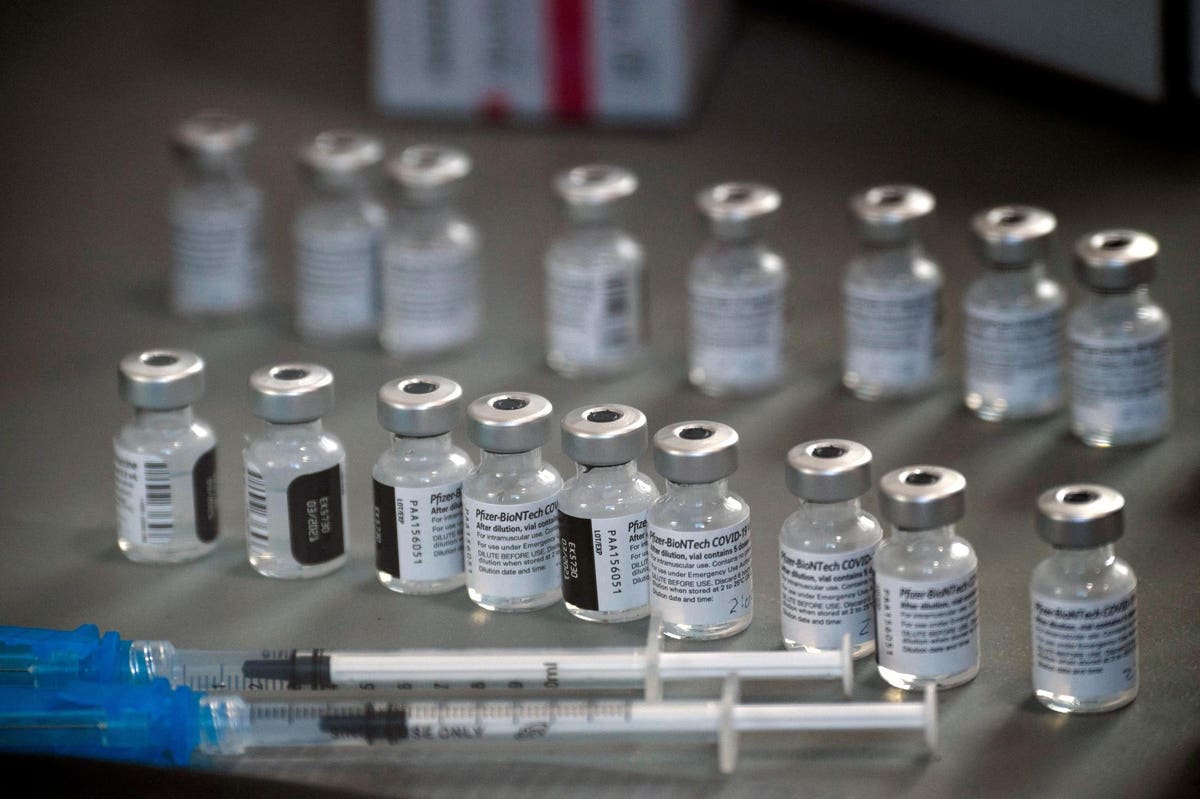Infection from Covid-19 has resulted in over one million deaths amongst Americans and well over six million hospitalizations over the course of the last four years, according to CDC data.
Types Of Available Vaccines
The good news is the new updated Covid vaccine is now available at many pharmacies throughout the country. The two mRNA vaccines that are currently available for use include the Pfizer-BioNTech and Moderna, and a third Novavax vaccine that is protein based is still under review by the FDA but may be approved in the near future.
The Difference Between The Updated Vaccine And The Prior Bivalent Vaccine
The updated vaccines are monovalent vaccines, as opposed to the bivalent booster that was available last year. Last year’s booster provided protection against two different strains of the virus, the original strain isolated from Wuhan, China in 2019 as well as the Omicron subvariants BA.4 and BA.5. The updated vaccine targets one strain, the Omicron XBB.1.5.
Protection Provided By The Updated Vaccine
Although the XBB.1.5 is not the dominant strain causing infections in the United States, the strains that are (EG.5 and FL.1.5.1) remain genetically similar to XBB.1.5. According to the Johns Hopkins Bloomberg School of Public Health, the updated vaccine will be effective at providing protection against the current dominant strains in America.
A highly mutant strain, known as BA.2.86 is genetically different than Omicron XBB.1.5. However, according to the CDC, the updated monovalent vaccine will still be effective at reducing severe disease and hospitalization against BA.2.86.
Who Should Get The New Vaccine?
According to the CDC, vaccination still remains the most effective means to protect against Covid-19 related hospitalizations, serious illness and death. Thus, the CDC is recommending everyone age six months and older to receive the updated monovalent vaccine. Those that have underlying diseases such as lung disease and Diabetes, and those whose immune system may be compromised such as those on chemotherapy or steroids, should not delay getting the vaccine.
Side Effects Of The Updated Vaccine
The side effects from the updated vaccine are no different than the side effects from previous Covid vaccines. They are generally mild and include muscle aches, pain and swelling at the site of vaccination, fatigue and possibly swollen lymph nodes.
When To Get The Updated Vaccine?
For those that have recently test posted for Covid or have recently experienced Covid infection, they should wait three months before getting the vaccine, according to CDC recommendations. Those with recent Covid infection are much less likely to get re-infected immediately after prior infection.
For those that have recently received a prior Covid vaccine, waiting two months before getting the new updated Covid vaccine is recommended in order to maximize immunity and antibody production against the strains targeted with the new vaccine.
Getting the Covid vaccine and the flu vaccine can occur at the same time. According to the Johns Hopkins Bloomberg School of Public Health, the immune response generated by each of the different vaccines remains unaffected whether or not vaccines are administered separately or at the same time.
The RSV vaccine can also be given at the same time as the updated Covid vaccine, although no studies have assessed the efficacy of the immune response when both vaccines are given together. The RSV vaccine is not recommended for everyone, but mainly for those at risk for severe infection and include adults older than the age of 60, pregnant females in their third trimester and toddlers.
How Much Does The Vaccine Cost?
For Americans with private insurance plans or those that have Medicare and Medicaid, the vaccine is entirely free and should be available at local pharmacies and health clinics. For the 25 million or so Americans without insurance, the vaccine can still be received free through the Bridge Access Program at least through the end of December 2024.
Read the full article here





